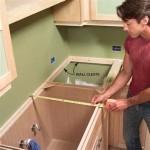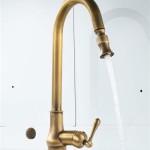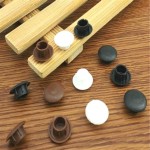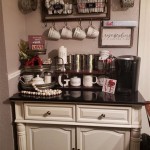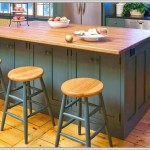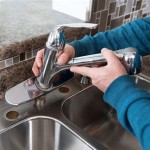Affordable Countertops for Kitchen Enhancements
Kitchen countertops are a critical element in both the functionality and aesthetics of any kitchen space. Choosing the right countertop involves balancing cost, durability, and visual appeal. While materials like granite and marble are highly desirable for their luxurious look and resilience, they often represent a significant investment. For homeowners seeking cost-effective alternatives, several affordable countertop options provide excellent value without compromising on quality or style. This article explores several such materials, detailing their characteristics, benefits, and potential drawbacks, while also providing insights into maintenance and lifespan considerations.
Laminate Countertops: A Budget-Friendly Classic
Laminate countertops have been a popular choice for decades, offering a wide variety of designs and patterns at a fraction of the cost of natural stone or solid surface materials. Constructed from layers of plastic laminate bonded to particleboard or MDF (Medium-Density Fiberboard), these countertops are relatively lightweight and easy to install. The decorative layer, the topmost laminate sheet, features a printed design that can mimic the look of granite, marble, wood, or other materials. This versatility allows homeowners to achieve a desired aesthetic without exceeding their budget.
One of the primary advantages of laminate countertops lies in their affordability. They are substantially less expensive than most other countertop materials, making them an attractive option for budget-conscious renovations or new construction. The ease of installation also contributes to cost savings, as installation can often be completed by a homeowner with basic carpentry skills, reducing the need for professional labor.
Beyond cost, laminate offers a decent level of durability. It is generally resistant to stains and scratches, and modern laminates are often treated with antimicrobial properties, further enhancing their hygienic qualities. The non-porous surface of laminate makes it easy to clean with standard household cleaners. However, laminate countertops are susceptible to damage from heat. Placing hot pots or pans directly on the surface can cause scorching or blistering. Similarly, water penetration at the seams can lead to swelling and delamination of the particleboard core. Therefore, proper sealing and maintenance are crucial for extending the lifespan of laminate countertops.
The lifespan of laminate countertops can vary depending on the quality of the material and the level of care. With proper maintenance, including the use of cutting boards and trivets, and prompt attention to any water damage, they can last for a considerable number of years. While laminate may not have the same longevity as granite or quartz, its affordability and ease of replacement make it a practical option for many homeowners.
Tile Countertops: Versatility and Customizable Design
Tile countertops offer a unique blend of affordability and design flexibility. Constructed from individual tiles adhered to a plywood or concrete substrate, tile countertops allow for a high degree of customization in terms of color, pattern, and texture. Various types of tiles can be used, including ceramic, porcelain, and glass, each with its own distinct characteristics and aesthetic appeal. This versatility makes tile a suitable option for kitchens with diverse design styles, from traditional to contemporary.
The cost of tile countertops can be relatively low, particularly when using standard ceramic or porcelain tiles. Tile is generally less expensive than solid surface materials or natural stone, and the cost of installation can be reduced by opting for a DIY approach. However, it's important to factor in the cost of grout, thin-set mortar, and sealing materials when estimating the overall cost of a tile countertop project.
Tile countertops are known for their durability and resistance to heat. Ceramic and porcelain tiles are highly resistant to heat damage, making them suitable for use near cooktops and ovens. Additionally, they are resistant to scratches and stains, making them relatively easy to maintain. However, the grout lines between tiles can be prone to staining and require regular cleaning and sealing to prevent the build-up of dirt and mildew. Epoxy grout, which is more stain-resistant than traditional cement-based grout, can be used to mitigate this issue.
One potential drawback of tile countertops is the uneven surface created by the grout lines. This can make it challenging to clean crumbs and debris from the countertop surface and may require the use of specialized cleaning tools to effectively remove dirt from the grout lines. Additionally, the edges and corners of tile countertops can be susceptible to chipping, requiring occasional repairs or replacements.
The lifespan of tile countertops can be considerable, particularly when using high-quality tiles and epoxy grout. With proper maintenance and regular sealing of the grout lines, tile countertops can last for many years. While the grout may require occasional repairs or replacements, the tiles themselves are generally quite durable and can withstand significant wear and tear.
Butcher Block Countertops: A Warm and Natural Aesthetic
Butcher block countertops are a popular choice for homeowners seeking a warm and natural aesthetic in their kitchens. Constructed from strips of hardwood, such as maple, cherry, or walnut, glued together to form a solid surface, butcher block countertops offer a unique combination of beauty and functionality. The natural variations in the wood grain and color create a visually appealing surface that complements a wide range of kitchen styles.
The cost of butcher block countertops can vary depending on the type of wood used, the thickness of the countertop, and the complexity of the design. While some hardwoods, such as walnut and cherry, can be relatively expensive, more affordable options, such as maple and birch, are readily available. Butcher block countertops can be purchased pre-fabricated or custom-made to fit specific kitchen layouts.
Butcher block countertops are known for their durability and functionality. The hardwood surface is resistant to scratches and dents, and minor imperfections can often be sanded out and refinished. Butcher block countertops are also heat-resistant, although it is still recommended to use trivets or hot pads to protect the surface from extreme heat. The natural resilience of wood allows it to withstand the rigors of daily kitchen use.
However, butcher block countertops require regular maintenance to prevent staining, warping, and cracking. The porous nature of wood makes it susceptible to moisture absorption, which can lead to these problems. To protect the surface, butcher block countertops should be regularly oiled with food-safe mineral oil or beeswax. This helps to create a water-resistant barrier and prevents the wood from drying out. Additionally, spills should be wiped up promptly to prevent staining.
Another consideration with butcher block countertops is their susceptibility to bacteria growth. While the natural antimicrobial properties of wood can help to inhibit bacteria growth, it is still important to maintain a clean and sanitary surface. Butcher block countertops should be regularly cleaned with soap and water, and a diluted bleach solution can be used to disinfect the surface. Some homeowners opt to use separate cutting boards for raw meats to further minimize the risk of contamination.
With proper care and maintenance, butcher block countertops can last for many years. Regular oiling and prompt attention to spills and stains will help to extend the lifespan of the countertop and preserve its natural beauty. While butcher block countertops may require more maintenance than some other countertop materials, the warm and inviting aesthetic they provide makes them a worthwhile investment for many homeowners.
Concrete Countertops: Industrial Chic on a Budget
Concrete countertops have gained popularity in recent years for their industrial-chic aesthetic and customizable design options. Made from a mixture of cement, sand, and aggregates, concrete countertops can be cast in place or pre-cast in a variety of shapes, sizes, and colors. The versatility of concrete allows for the creation of unique and personalized countertops that complement a range of kitchen styles, from modern to rustic.
The cost of concrete countertops can vary depending on the complexity of the design, the size of the countertop, and the level of customization. While the raw materials for concrete are relatively inexpensive, the labor costs associated with mixing, pouring, and finishing the concrete can be significant. Homeowners can save money by opting for a DIY approach, but this requires a significant investment of time and effort, as well as a thorough understanding of concrete mixing and finishing techniques.
Concrete countertops are known for their durability and heat resistance. Once properly cured and sealed, concrete is highly resistant to heat damage, making it suitable for use near cooktops and ovens. Additionally, concrete is resistant to scratches and dents, although it can be susceptible to staining if not properly sealed.
One of the primary challenges with concrete countertops is their porosity. Concrete is naturally porous, which means that it can easily absorb liquids and stains. To prevent this, concrete countertops must be sealed with a high-quality sealant. The sealant should be reapplied periodically to maintain its effectiveness. Additionally, it is important to wipe up spills promptly to prevent staining.
Another consideration with concrete countertops is their weight. Concrete is a heavy material, which means that it may require additional structural support in the kitchen cabinetry. Before installing concrete countertops, it is important to consult with a structural engineer to ensure that the cabinets can support the weight of the countertop.
Concrete countertops can also be prone to cracking. While minor hairline cracks are common and generally do not affect the structural integrity of the countertop, larger cracks can be unsightly and may require repair. To minimize the risk of cracking, it is important to use a high-quality concrete mix and to properly reinforce the concrete with rebar or wire mesh.
With proper care and maintenance, concrete countertops can last for many years. Regular sealing and prompt attention to spills and stains will help to extend the lifespan of the countertop and preserve its unique aesthetic. While concrete countertops may require more maintenance than some other countertop materials, their durability and customizable design options make them a worthwhile investment for some homeowners.
Stainless Steel Countertops: Hygienic and Durable with a Modern Edge
Stainless steel countertops offer a modern and industrial aesthetic, known for their durability, hygiene, and ease of cleaning. Commonly found in commercial kitchens, these countertops are becoming increasingly popular in residential spaces for their sleek appearance and functional benefits.
While generally more expensive than laminate or tile, stainless steel countertops represent a mid-range affordable option compared to high-end materials like granite or marble. The cost is influenced by the gauge of the steel (thickness), the complexity of the design, and any custom fabrication requirements.
One of the most significant advantages of stainless steel is its hygienic properties. The non-porous surface inhibits the growth of bacteria and germs, making it an ideal choice for food preparation areas. It is also incredibly easy to clean and sanitize, requiring only soap and water or a mild disinfectant.
Furthermore, stainless steel is highly durable and resistant to heat, stains, and water damage. Unlike some other materials, it will not scorch or melt when exposed to hot pots and pans. It is also resistant to most chemicals and solvents, making it a practical choice for kitchens with heavy use.
However, stainless steel countertops are susceptible to scratches and dents. While minor scratches can often be buffed out, deeper scratches can be more difficult to repair. Dents can also occur if heavy objects are dropped on the surface. To minimize the risk of damage, it is recommended to use cutting boards and avoid dropping heavy items.
Another consideration is the noise factor. Stainless steel countertops can be quite noisy, especially when pots and pans are placed on the surface. This can be mitigated by adding a sound-deadening material to the underside of the countertop during installation.
The lifespan of stainless steel countertops is exceptionally long, often lasting for decades with proper care. The durable nature of the material ensures that it can withstand the rigors of daily kitchen use. While stainless steel countertops may not be as luxurious as some other materials, their practical benefits and modern aesthetic make them an appealing choice for many homeowners.

10 Affordable Kitchen Countertop Ideas You Ll Love Angi

15 Countertop Materials For 2025 Marble Com

Affordable Kitchen Countertop Ideas Budget Countertops For 2024

15 Countertop Materials For 2025 Marble Com

6 Stylish Ideas To Replace Your Kitchen Countertops On A Budget

What Are The Most Affordable Kitchen Countertop Materials

7 Affordable Countertop Options That Look Great

Countertop Ideas Inexpensive Options For Kitchen And Bath Homeadvisor

15 Countertop Materials For 2025 Marble Com

Affordable Countertops Stylish Choices That Won T Break The Bank America S Dream Homeworks
Related Posts

